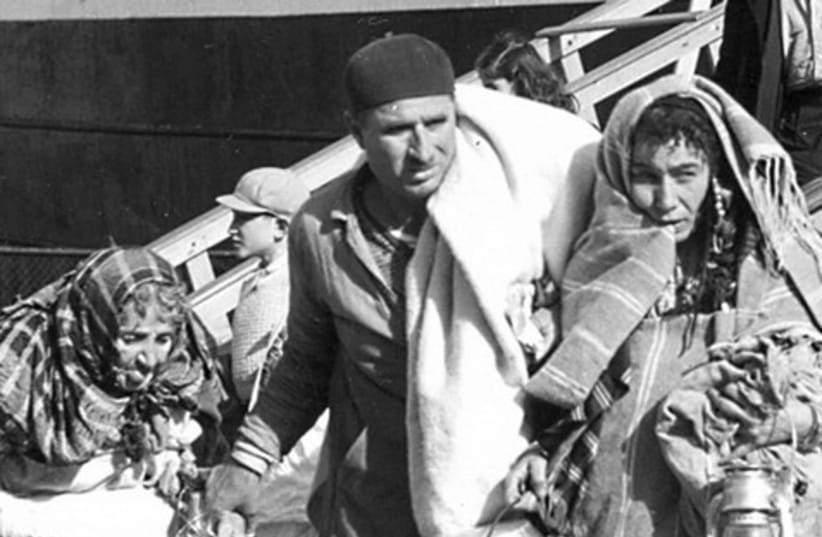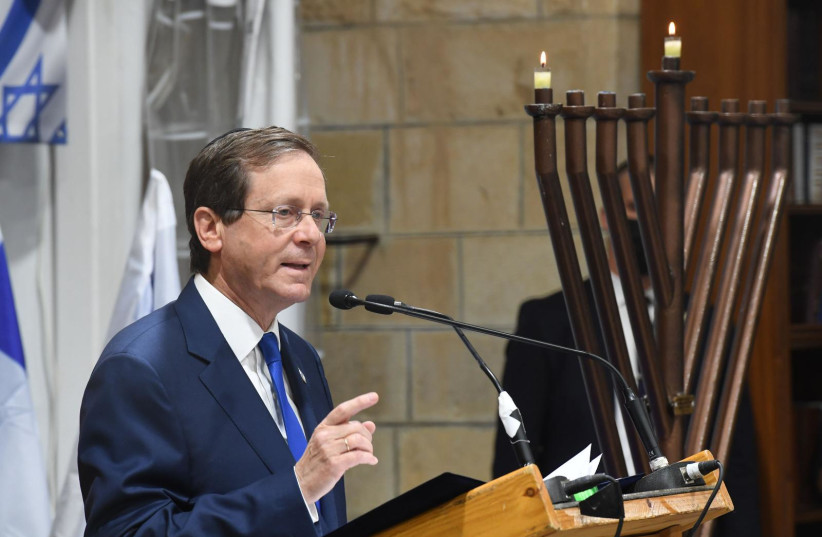November 30 has been designated as the official date on which the fleeing or expulsion of Jews from Arab and Islamic lands is commemorated in Israel and throughout the Jewish world.
A clue as to the reason for this was provided on Tuesday by Dr. Shimon Ohayon of the World Federation of Sephardi Jews who said that when the vote for the partition of Palestine was cast at the United Nations General Assembly on November 29, 1947, for the Egyptian representative warned that if the resolution passed, Jews in Arab countries would pay a heavy price – and indeed that is exactly what happened. There were pogroms in which many Jews were killed, Jewish homes and places of business were ransacked, destroyed and synagogues were violated and vandalized.
Ohayon, a former MK, in 2014 initiated the bill for recognizing November 30 as the official date for commemorating the exodus of Jews from Arab lands.
Of the Egyptian Jews 40% fled, leaving all their assets behind, said Ohayon, adding that the Arab League incited violence against Jews throughout the Arab world.
Ohayon was speaking at the official state commemoration for Jews who had been forced to leave Arab and Muslim lands. President Isaac Herzog and Social Equality and Pensioners Minister Meirav Cohen (Yesh Atid) also addressed the commemoration ceremony.
The underlying message by all the speakers as well as by compère and radio and television personality Jackie Levy was that more than two thousand years of the achievements and traditions of Jews in Arab lands, had been largely ignored in Israel, and it was imperative for the stories to be told.
Herzog himself said that even though immigrants from Arab lands and Iran had arrived in Israel with virtually nothing, there was a spark of optimism in that they had overcome their difficulties and had contributed to the upbuilding of the nation. Cohen was the symbol of this, Herzog said, noting that her grandparents Saadia and Sala had come from Morocco and had been sent to Ramle, where Saadia worked very hard to provide for his family, and today his granddaughter is a minister in the government of Israel.
Long before Cohen’s grandparents and others like them came to Israel, said Herzog, there had been a steady trickle of migration from Morocco for some five hundred years.
There is no doubt about the how or the why Jews left Arab lands, and to this day, no Arab government has accepted responsibility, said Herzog. Acknowledging that more of the story must be told, Herzog praised a woman in the audience who has put the story of Iraqi Jews on the Internet for the whole of the world to see.
He was hopeful that changes in the region and the normalization of relations between Israel and various Muslim countries will help to strengthen relations between Israel and the few Jews still living in those countries.
Cohen said that the story of her family was more or less that of every family who came to Israel in the 1950s. She also insisted that they had been misrepresented as pure refugees, when in fact they came with the same commitment as the early pioneers. “We have to understand that our parents were heroes even if they were not doctors and lawyers,” she said. “They were the ones who settled in development towns and built them up, but somehow never felt as if they were part of Israeli mainstream society.”
Although she did not directly attribute this to a failure on the part of the education system, she noted that while most Israelis are aware of the Kishinev pogrom, they are ignorant of the pogroms in Morocco, Iraq and Algeria.
This is something that must be rectified, she insisted. “Every child should be taught this as part of Zionist history.”
Admitting that there is still discrimination against Jews from Arab lands despite their contributions in every field of Israel’s endeavors, she said that the only way to tackle this problem is through social solidarity.
Altogether, the estimate is that some 850,000 Jews who were living in Arab and Muslim lands left at some stage during the 20th century. The largest number of Jew forced out of their countries – some 259,000 – were from Morocco, followed by 140,000 from Algeria and 100,000 from Tunisia. Other countries included Egypt, Libya, Iraq, Yemen, Turkey, Lebanon, Syria and Iran.

